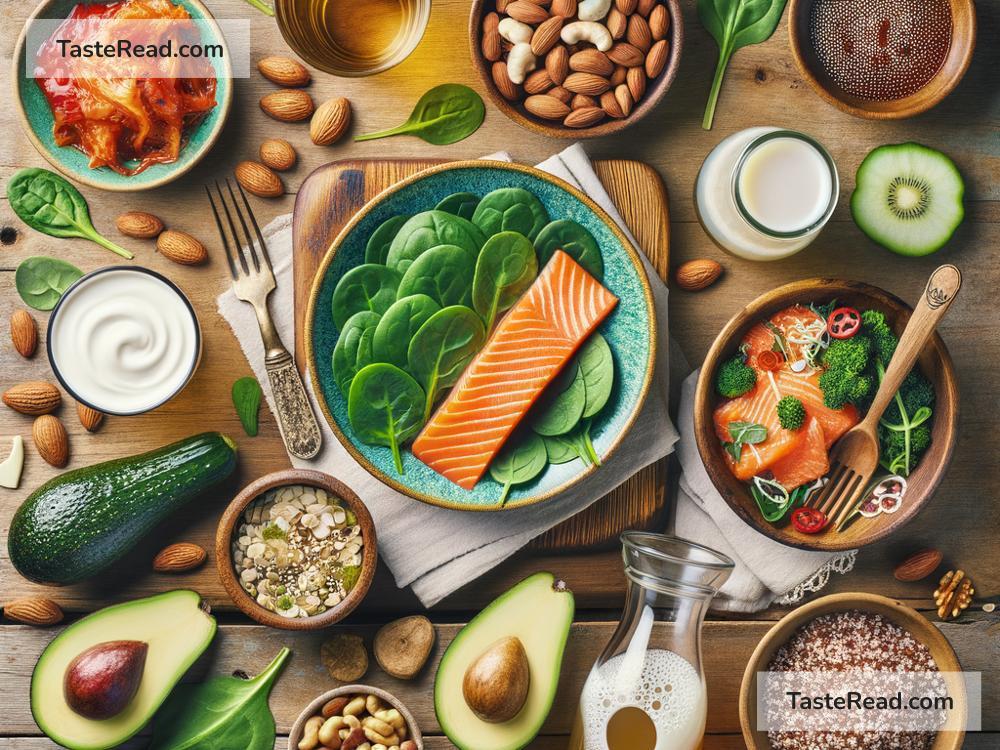The Connection Between Diet and Gut Health
Your gut does more than just digest food. It’s a complex world filled with trillions of microbes, working silently behind the scenes to keep you healthy. But did you know that what you eat can greatly affect your gut’s health? In this article, we’ll explore the connection between diet and gut health in simple, easy-to-understand terms. Let’s dive in!
What Is Gut Health?
Gut health refers to how well your digestive system is functioning and includes the balance of bacteria in your gut. These bacteria, often called gut microbiota, play an important role in your health. A healthy gut helps your body digest food, absorb nutrients, fight off illness, and maybe even improve your mood. On the other hand, poor gut health can lead to digestive problems, a weakened immune system, and even chronic conditions like obesity or diabetes.
Why Gut Bacteria Are Important
Your gut is home to trillions of bacteria, both good and bad. The good bacteria help your body in many ways. They break down food, produce vitamins (like B12 and K), and support your immune system. They may also keep inflammation under control and even influence mental health. Scientists believe gut bacteria are connected to conditions such as anxiety and depression.
When the balance of these bacteria is off—more bad bacteria than good—you may face health problems. This imbalance is called gut dysbiosis and is often linked to diet and lifestyle choices.
How Diet Impacts Gut Health
Your diet plays a huge role in deciding which bacteria live in your gut. Some foods foster a healthy environment that supports good bacteria, while others encourage bad bacteria and inflammation. Let’s break it down.
Foods That Help Gut Health:
-
Fiber-rich foods: Good bacteria love fiber. Fiber helps them grow and thrive while keeping your gut moving regularly. Foods like fruits, veggies, whole grains, beans, and legumes are rich in fiber.
-
Probiotic-rich foods: Probiotics are live bacteria that are beneficial for your gut. You can find them in fermented foods like yogurt, kefir, sauerkraut, kimchi, and miso.
-
Prebiotic foods: Prebiotics are food for the good bacteria in your gut. Bananas, onions, garlic, asparagus, and oats are all great prebiotic options.
-
Healthy fats: Foods high in omega-3 fatty acids, such as salmon, walnuts, and flaxseeds, can reduce gut inflammation and support bacterial balance.
Foods That Hurt Gut Health:
-
Sugary and processed foods: Poor gut health is often linked to excessive sugar and processed food intake. These can feed bad bacteria and lead to inflammation.
-
Artificial sweeteners: Some studies suggest that artificial sweeteners may negatively impact gut bacteria and contribute to gut dysbiosis.
-
High-fat, fried foods: These are often hard for your gut to process and can promote unhealthy bacteria.
-
Alcohol: Excess alcohol consumption can damage the gut lining and disrupt bacterial balance.
The Gut-Brain Connection
Your gut and brain are closely connected in what scientists call the gut-brain axis. The gut sends signals to the brain, and the brain sends signals to the gut. You’ve probably noticed this connection yourself—like when you feel “butterflies” in your stomach before a big test.
A healthy gut can help improve your mental health, while an unhealthy gut may lead to stress, anxiety, or depression. Eating gut-friendly foods isn’t just good for your stomach; it may also help you feel happier and more focused.
Steps to Improve Your Gut Health
Improving your gut health doesn’t require drastic changes. With a few adjustments to your diet and lifestyle, you can start supporting your gut’s good bacteria. Here are some easy steps to get started:
-
Eat more whole foods: Instead of choosing heavily processed snacks, go for whole foods like fresh fruits, vegetables, and nuts.
-
Incorporate probiotics: Add yogurt, kefir, or other fermented foods to your meals.
-
Stay hydrated: Drinking plenty of water helps your digestive system work properly.
-
Cut down on sugar and alcohol: Reducing your intake of sugar and alcohol can support a healthier bacterial balance.
-
Move your body: Regular exercise has been shown to improve gut health.
-
Diversify your diet: Don’t eat the same meals every day. A varied diet helps support a wider range of gut bacteria.
A Healthier Gut for a Healthier You
Your gut health is directly influenced by your diet. By eating more fiber, probiotics, and prebiotics, and cutting back on processed food and sugar, you’re feeding the good bacteria that keep your gut healthy. A balanced gut doesn’t just improve digestion—it can boost your immune system, regulate your mood, and protect you from illnesses.
The connection between diet and gut health is clear, and the best part is that you’re in control. Small changes in your daily meals can lead to big improvements over time. Listen to your body, make good food choices, and enjoy the benefits of a happy gut!
Take the first step toward better gut health today—your gut (and your overall health) will thank you!


